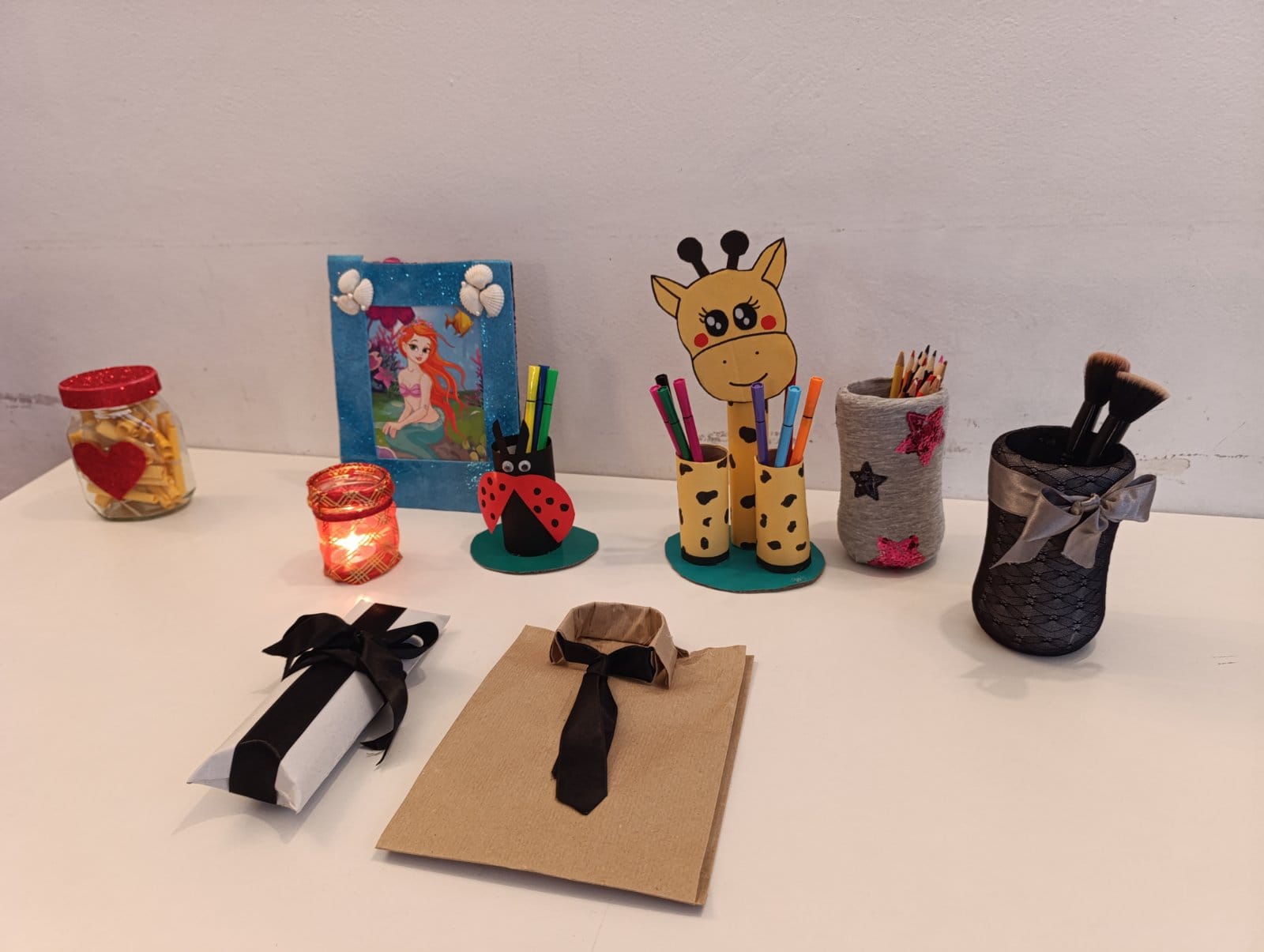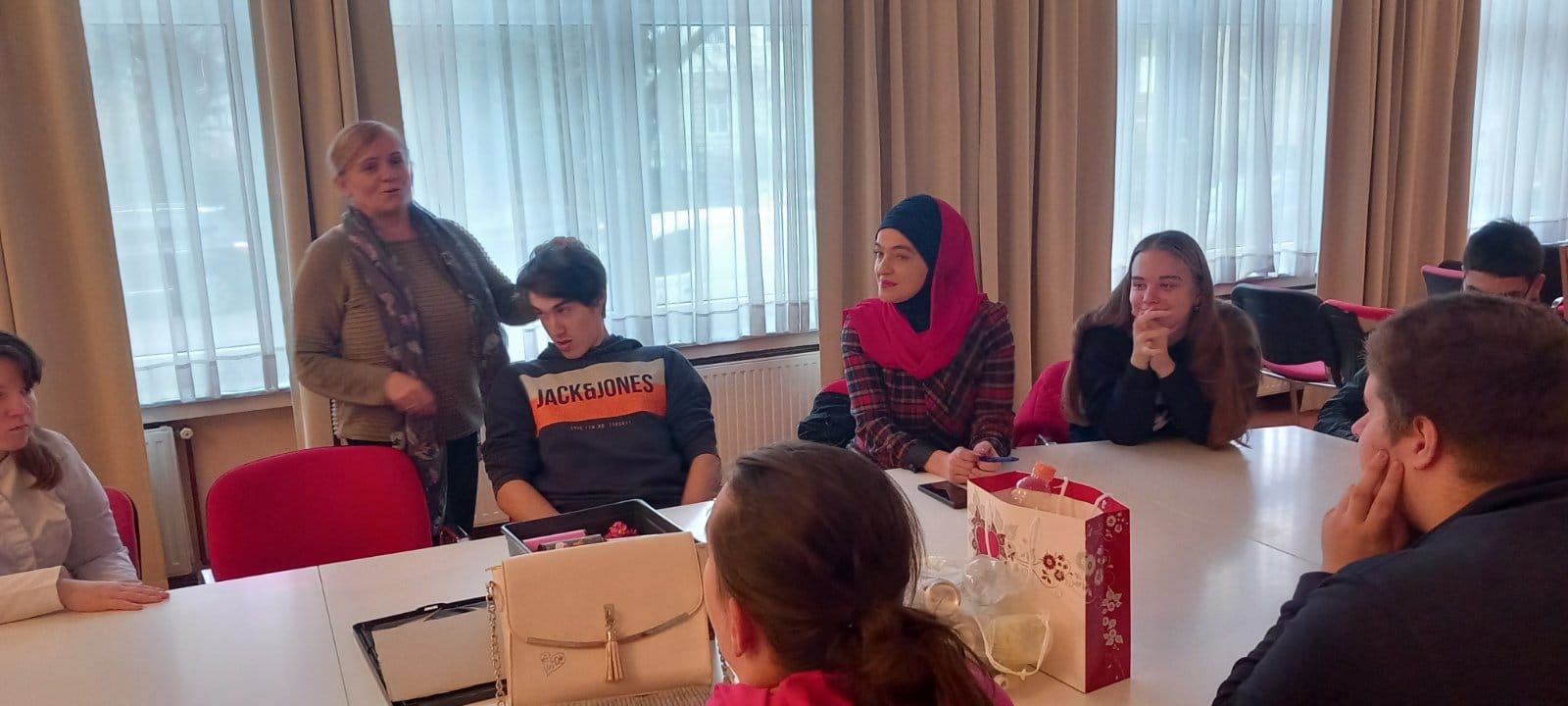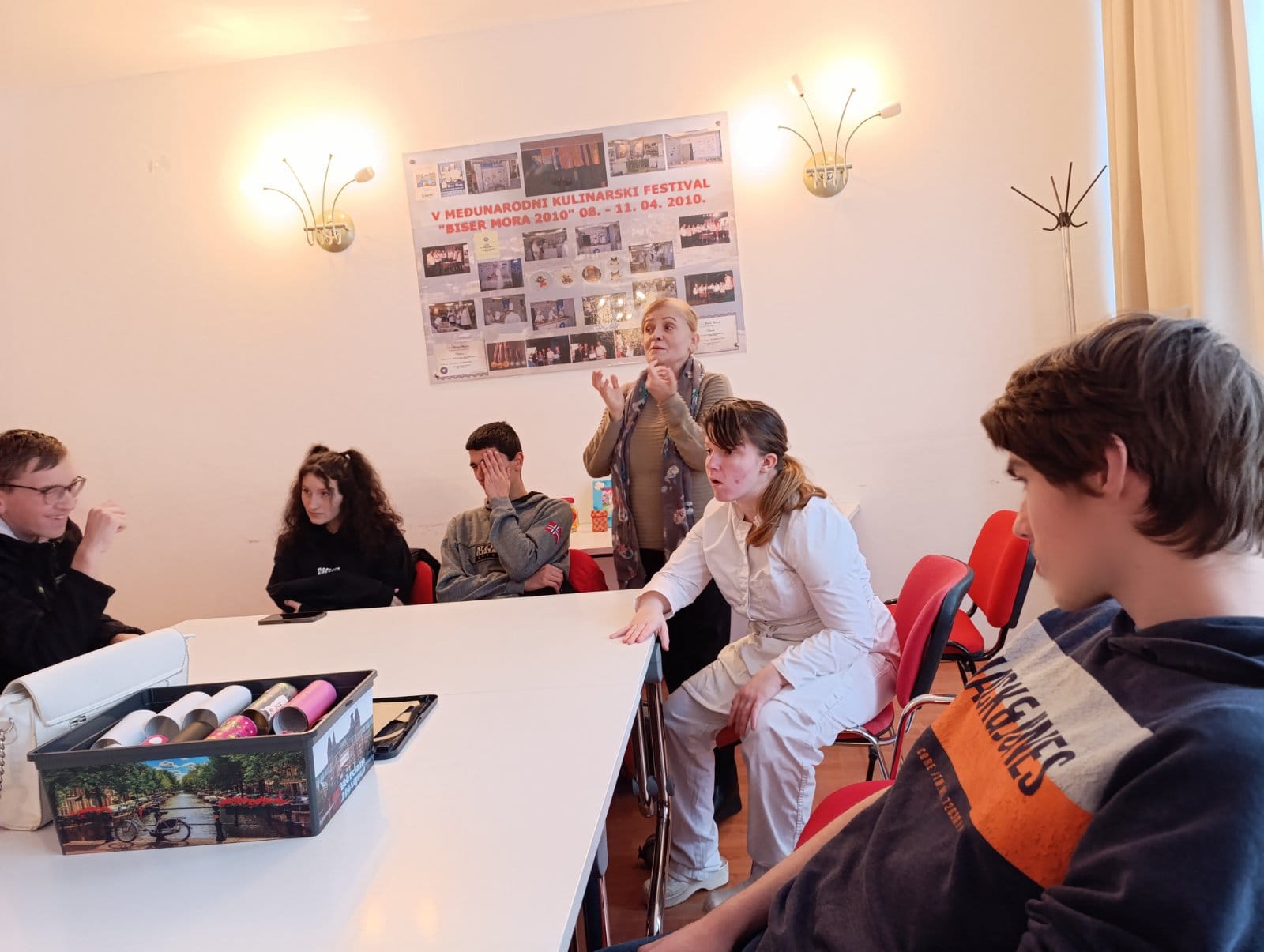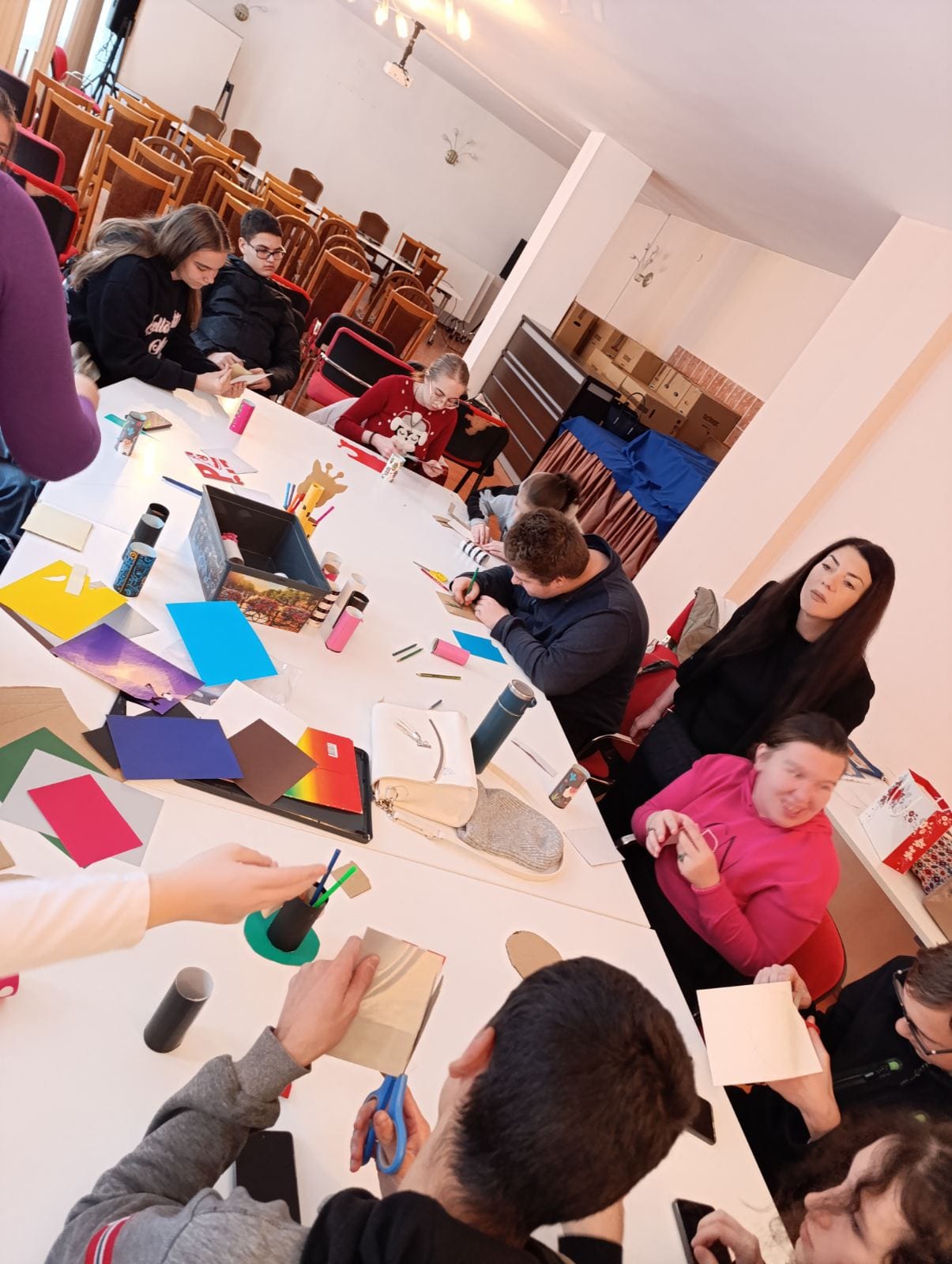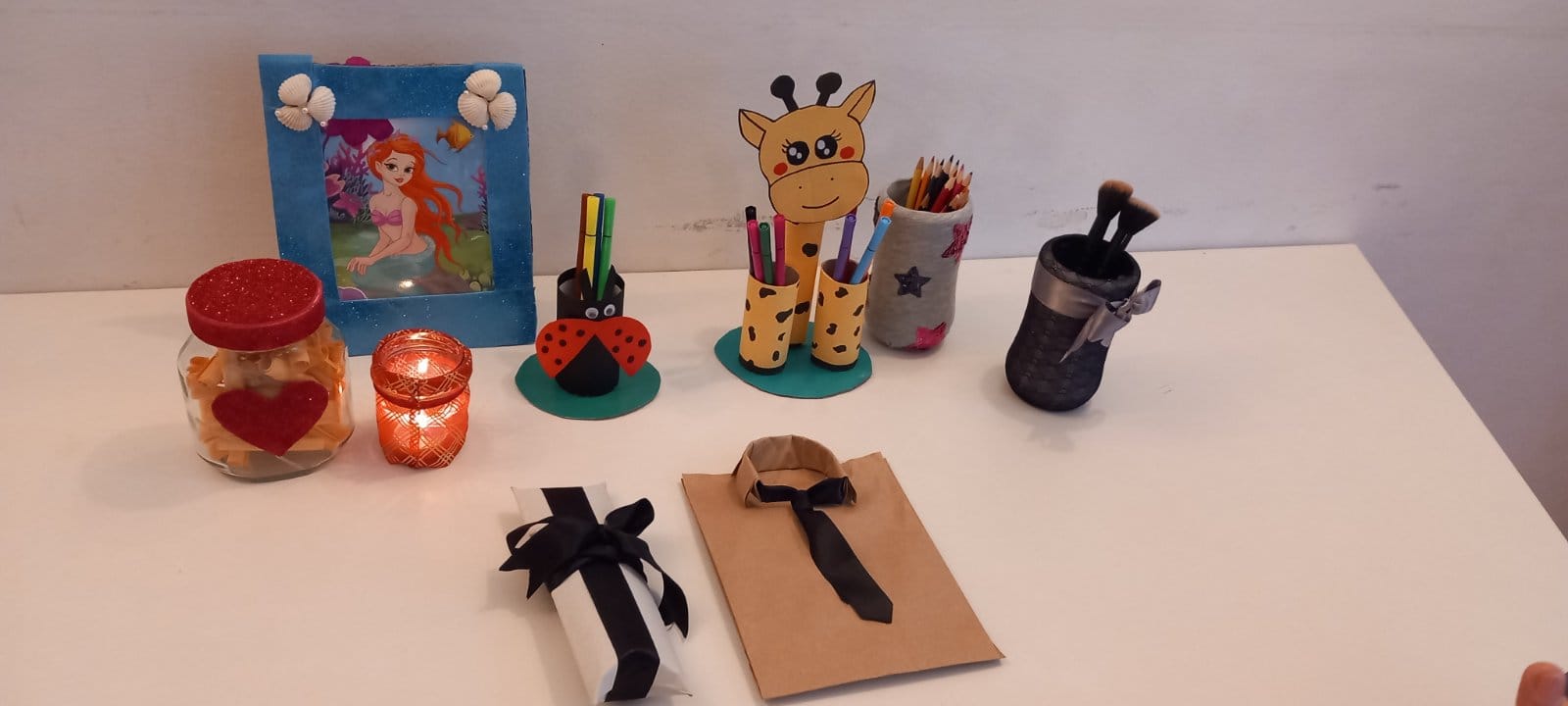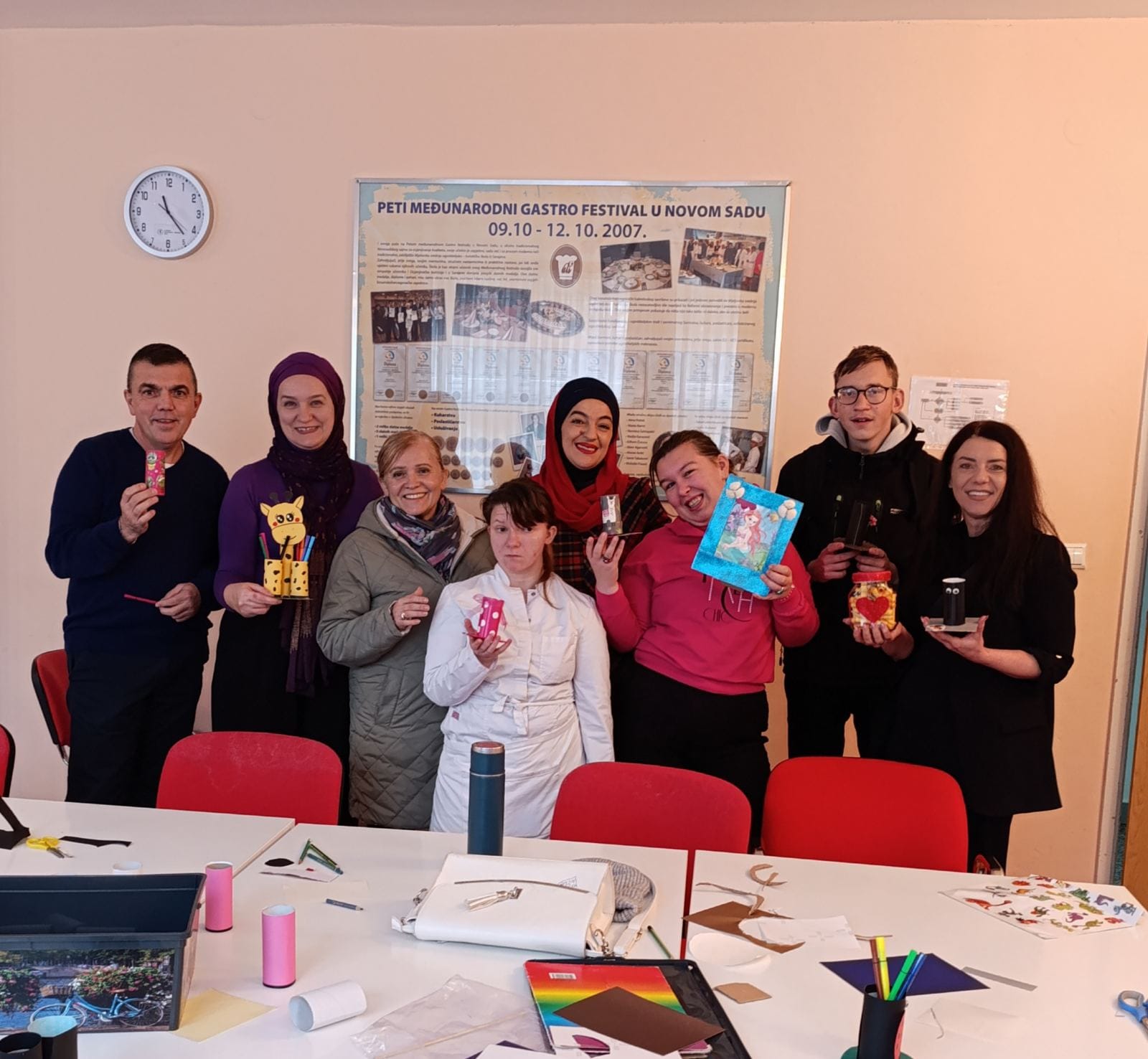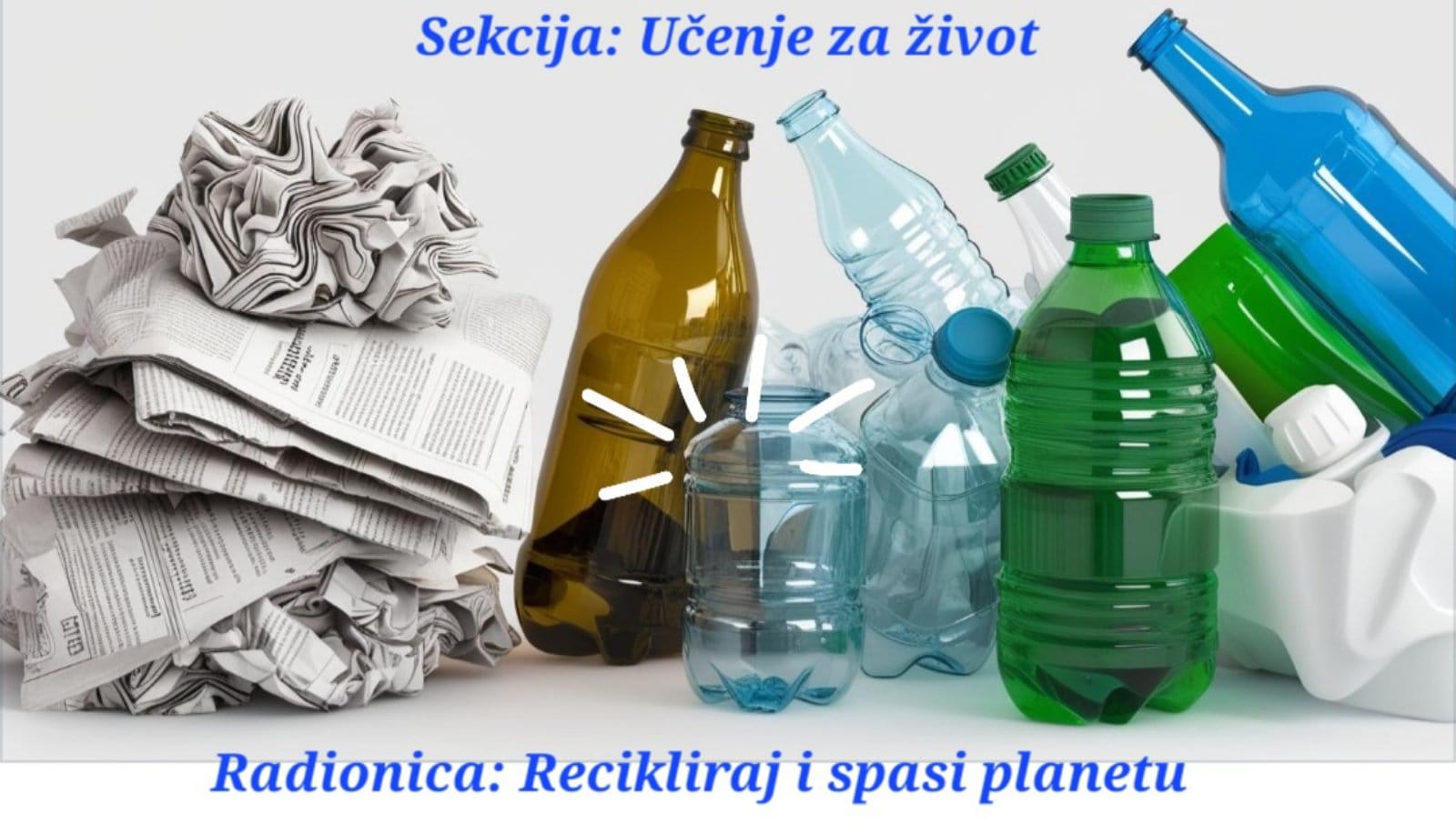A workshop titled “Recycle and Save the Planet” was held to educate students on the importance of recycling and environmental conservation. The workshop began with a presentation on the significance of recycling, emphasizing its crucial role in protecting the environment for future generations. Following the informational session, students were introduced to practical recycling techniques, focusing on materials such as glass, plastic, and paper. In the creative part of the workshop, students applied these techniques by recycling paper rolls and transforming them into useful and decorative items, such as school supply holders.
The workshop aimed to foster environmental awareness and to engage students in eco-friendly activities, encouraging them to take an active role in preserving the planet.

